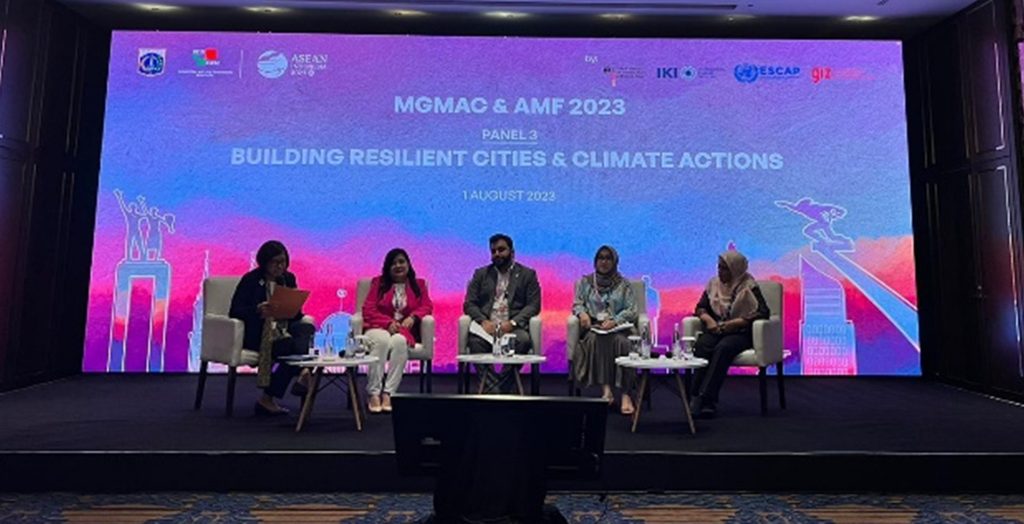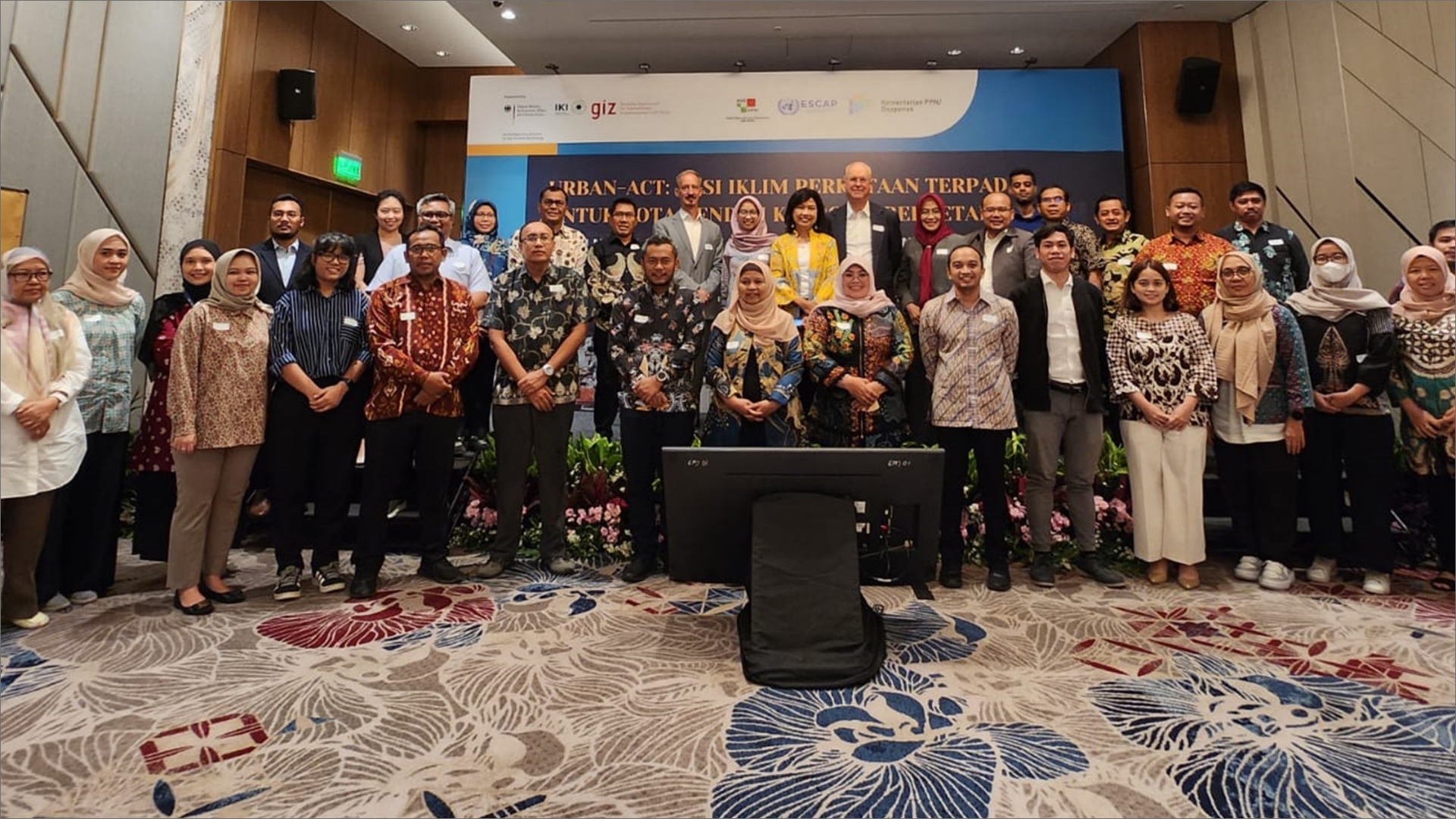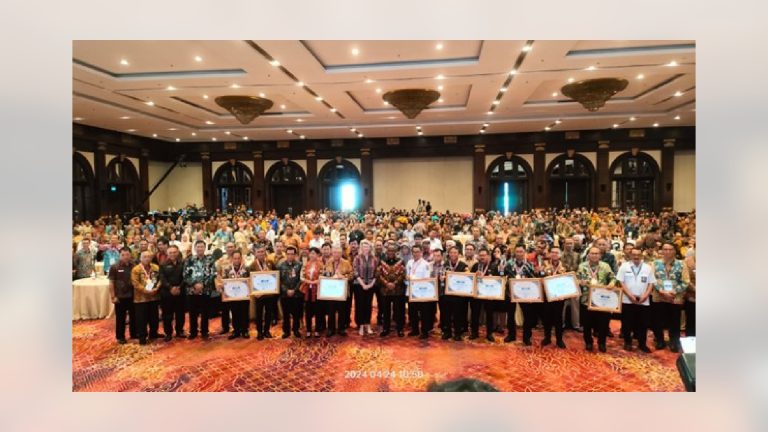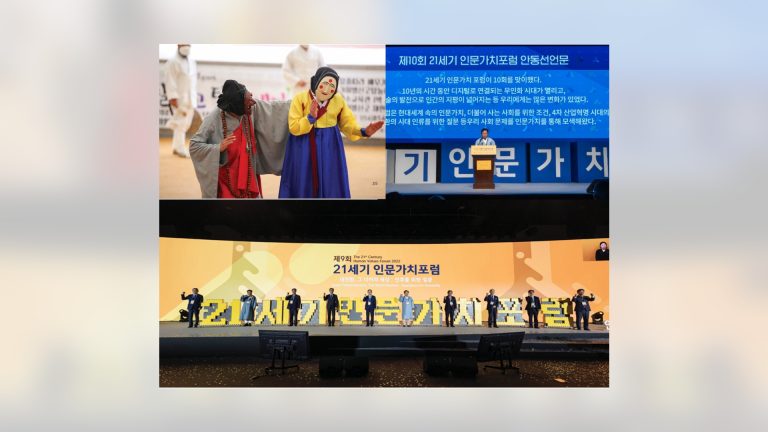August 2023 | UCLG ASPAC, under the framework of The Urban-Act: Integrated Urban Climate Action for Low-Carbon and Resilient Cities, led and coordinated the project’s kick-off meeting on August 10, 2023, in Jakarta. The Urban-Act project is a visionary initiative funded by the Federal Ministry for Economic Affairs and Climate Action (BMWK) of Germany and the International Climate Initiative (IKI) and implemented by The Deutsche Gesellschaft für Internationale Zusammenarbeit GmbH (GIZ) in collaboration with UCLG ASPAC, The United Nations Economic and Social Commission for Asia and the Pacific (UN ESCAP), and other consortium partners. The primary objective of the project is to support the transformation of urban development in China, Indonesia, the Philippines, India, and Thailand towards low-carbon and climate-resilient urbanisation. Running from October 2022 to September 2026, the project aims to achieve several key outcomes, including 1) Improved institutional environments for climate-sensitive urban development, 2) Evidenced-based and inclusive climate-sensitive spatial and urban planning, 3) Project concepts for urban climate action investments identified, and 4) Enhanced knowledge through regional networking, exchange, and learning. UCLG ASPAC acts as one of the project’s regional implementing partners and country implementing partners for Indonesia.
Kick-off Meeting and Launching Urban-Act Pilot Cities in Indonesia
The project’s kick-off meeting and launching of pilot cities in Indonesia on August 10, 2023, marked a significant milestone in the fight against climate change. Related partners and stakeholders sat together and ensured they moved forward under the same context, objectives, and work plans to deliver the outcomes of the project. They also shared knowledge and ideas in the development of low-carbon and climate-resilient urban actions as well as explored potential collaborations in the future. The event brought together key stakeholders including Indonesian government representatives: National Development Planning Agency (Bappenas) as the project’s political partner in Indonesia, the Ministry of Environment and Forestry, the Ministry of Home Affairs, and the Ministry of Finance, academicians, and development partners. The discussion focused on charting the path forward for Indonesia’s urban climate action, emphasising the vital role of sustainable urbanisation in mitigating and adapting climate change impacts and achieving national and global climate targets.
Mr. Heinrich Gudenus, Project Director of Urban-Act (GIZ Thailand), highlighted the central aim of the kick-off meeting is to get mutual understanding as well as serve as a platform to attentively listen to the priorities, perspectives, needs, and support required by stakeholders so it could align seamlessly with Indonesia’s Vision 2045. While acknowledging potential challenges ahead, he noted the abundant opportunities for innovation, collaboration, and positive transformation in Indonesia. Mr. Omar Siddique, the Project Coordinator of Urban-Act, emphasised, “To address the challenges of climate change, we must adopt a multi-level approach to climate action as it is not enough for one sector or level of government to bear the burden. We need collaboration, innovation, and resource sharing across all levels.” He also stressed UN ESCAP’s role in facilitating city climate financing to support initiatives targeting GHGs emissions reduction, resilience enhancement, and the promotion of SDGs.
Secretary General of UCLG ASPAC, Dr. Bernadia Irawati Tjandradewi, underscored three critical focal points within the climate change enabling environment: climate financing, capacity building, innovation, and technology. Highlighting the significance of these areas, she emphasised that despite the project’s four-year timeline, UCLG ASPAC remains steadfast in its commitment to continually enhance the capacity of local governments and to ensure that the Urban-Act project leaves a legacy of positive change. Bappenas, the strategic partner of Urban-Act Indonesia, also highlighted the pivotal role of integrating the project to bolster the implementation of Climate Resilience Development (CRD). This strategic alignment underscores the commitment to advancing climate resilience at both local and national levels.
In Indonesia, the Urban-Act project has selected Padang and Medan as the project’s pilot cities considering the capacity, characteristics, political commitment, institutional readiness, diversity, available relevant assessment, and financial commitment. As the project moves forward, it promises to be a beacon of hope for cities striving to balance growth with environmental responsibility and resilience.
Resilient Cities and Climate Actions in ASEAN Mayors Forum

Prior to kick-off, the Urban-Act Project held the first knowledge sharing at the recent ASEAN Mayors Forum (AMF) event organised on August 1-2, 2023 in Jakarta through Panel Session 3 on Resilient Cities and Climate Actions, jointly organised by GIZ, UN ESCAP, and UCLG ASPAC.
Discussion revolved around strategies and priorities to achieve resilient cities and climate actions. Notably, climate initiatives such as the Urban Act project for low-carbon and resilient cities emerged as a key enabler, supporting policy change, capacity building, climate action planning for financing, and partnership. While national and local governments have made commendable efforts to reduce greenhouse gas (GHG) emissions and enhance climate resilience, however, challenges remain. These challenges include low awareness and participation in climate change issues, limited institutional and regulatory capacity, inadequate data availability, and constrained funding for climate resilience efforts.
Some key recommendations from the discussions included 1) Demonstrate commitment by prioritising long-term development planning (including national development plan and NDCs target), ensure sustained efforts and investments in climate resilience; 2) Encourage vertical integration, cross-sectoral, and intergenerational involvement by actively engaging wider communities in climate emergency response, promoting inclusivity and collective actions; 3) Strengthen science-based information and data-driven decision-making in urban planning; 4) Empower ASEAN cities for climate resilience through strong stakeholder cooperation. This calls for the active involvement of governments, private sectors, and communities, fostering collaborative efforts. To achieve this, unlocking urban climate resources (such as climate financing and capacity building) is needed.
Discussion in the Urban-Act Project Panel Session 3 recommended several actions to the AMF outcome including: facilitate peer-to-peer learning across the ASEAN cities, promote knowledge exchange on successful climate resilience strategies, active engagement with cities to acknowledge them as climate leaders, thus ensuring their meaningful participation in climate action planning and implementation.
In regional scope, UCLG ASPAC, under the framework Urban Act Project will facilitate regional dialogue, such as in the Asia-Pacific Urban Forum (APUF), in addition to producing City Enabling Environment assessment criteria 11 (particularly on Climate Change), supporting pilot cities on bankable projects, and facilitating peer learning workshops.











